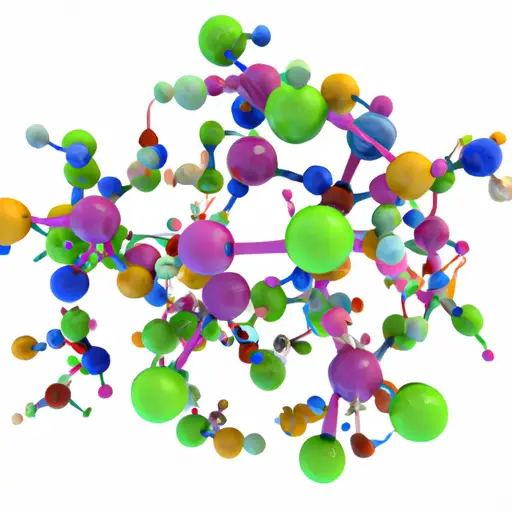Benefits of Prebiotic Supplements
Hey There, Let Me Tell You About Prebiotic Supplements!
So, have you ever heard of prebiotic supplements? If not, don’t worry, I’ll explain it to you! Prebiotic supplements are essentially a type of dietary fiber that acts as food for the good bacteria in your gut. They’re usually in the form of a powder or pill and can be easily added to your daily routine.
As someone who struggles with digestion issues, I was intrigued when I first learned about prebiotic supplements. After some research and personal experience, I can confidently say that they offer a range of benefits that can help improve overall health and well-being.
If you’re curious about prebiotic supplements but not sure where to start, keep reading! I’ll share some information about the benefits of prebiotics, how they work, different types of supplements, and potential side effects.
The Incredible Benefits of Prebiotic Supplements
Hey there friends, are you looking for a way to improve your digestion and increase your energy levels? Well, you might want to consider adding prebiotic supplements to your diet! These amazing supplements have a ton of benefits that can help improve your overall health and well-being.
First and foremost, prebiotic supplements can work wonders for your digestion. By stimulating the growth of good bacteria in your gut, they can help regulate your digestive system and prevent issues like constipation and bloating. And believe me, there’s nothing worse than feeling uncomfortable and sluggish all day!

But wait, it gets better! Prebiotic supplements have also been shown to increase energy levels, which is great news for anyone who struggles to get through the day without feeling tired or drained. By improving nutrient absorption, prebiotic supplements can give your body the energy it needs to function at its best.
And that’s not all – prebiotic supplements can also reduce inflammation and strengthen your immune system. By promoting the growth of good bacteria in your gut, these supplements can help reduce inflammation throughout your body, which can cause a variety of health problems. And a stronger immune system means less sickness and fewer trips to the doctor!
So how exactly do prebiotic supplements work? Well, it’s quite simple. Prebiotics are non-digestible carbohydrates that serve as food for the good bacteria in your gut. By providing these bacteria with the nutrients they need to thrive, prebiotic supplements can help create a healthy balance of bacteria in your gut and improve your overall health.
There are a few different types of prebiotic supplements to choose from, including inulin, fructo-oligosaccharides (FOS), and galactooligosaccharides (GOS). Each type has its own unique benefits, so it’s important to do your research and find the one that’s right for you.
Of course, as with any supplement, there are potential side effects to be aware of. Some people may experience digestive issues like gas or bloating when they first start taking prebiotic supplements. However, these side effects usually go away after a few days or weeks, as your body adjusts to the new supplement.
In conclusion, prebiotic supplements are an amazing way to improve your overall health and well-being. Whether you’re looking to improve your digestion, boost your energy levels, or strengthen your immune system, these supplements have a ton of benefits to offer. So what are you waiting for? Give prebiotic supplements a try today and see how they can improve your life!
How the Heck Do Prebiotic Supplements Work?
Listen up folks, because I’m about to drop some knowledge bombs on you. Prebiotic supplements work by stimulating the growth of good bacteria in your gut. Crazy, right? They contain specific types of fibers that are not digested by our bodies but are instead fermented by our gut bacteria. This fermentation process produces short-chain fatty acids like butyrate, acetate, and propionate that the good bacteria thrive on.
But it’s not just about feeding the good bacteria. These fibers also help increase nutrient absorption in our gut by creating a healthy environment for our gut flora. They can reduce inflammation by modulating our immune system, and even increase our energy levels. How cool is that?
There are different types of prebiotic fibers out there, including inulin, fructo-oligosaccharides (FOS), and galactooligosaccharides (GOS). Each works in a slightly different way but ultimately have the same goal in mind: to keep our gut healthy and happy.
So the next time you’re thinking about taking a prebiotic supplement, remember that you’re not just ingesting some random fibers. You’re giving your gut bacteria the fuel they need to keep you healthy from the inside out. Pretty neat, huh?
Yummy Prebiotic supplements
Now that we know the benefits of prebiotic supplements, let’s take a closer look at the types of prebiotic supplements that are available to us.
First up, is inulin. This supplement is found in many plant-based foods and is known for its ability to stimulate the growth of healthy bacteria in the gut. It’s commonly used in protein bars and other snack foods, making it an easy way to sneak in some extra prebiotics into your diet.
Another popular prebiotic supplement is fructo-oligosaccharides (FOS). Much like inulin, FOS promotes the growth of beneficial bacteria. It’s often added to yogurts and other dairy products because it has a sweet taste and can be used as a sugar substitute.
Finally, we have galactooligosaccharides (GOS). This supplement is found in breast milk and is added to many infant formulas. Studies have shown that GOS can improve gut health and immune function in infants.
Keep in mind that not all prebiotic supplements are created equal. It’s important to do your research and make sure you’re choosing a supplement that is right for you. Additionally, it’s always a good idea to consult with your healthcare provider before starting any new supplement regimen.
Potential Side Effects
Now, let’s talk about some of the possible side effects of prebiotic supplements. While these supplements are generally safe for most people, some may experience certain adverse effects. For instance, taking too much prebiotic supplements can cause digestive discomfort, bloating, gas, and constipation. However, these symptoms will likely subside as your body adjusts to the supplement. Another potential side effect of prebiotic supplements is allergic reactions. If you have a pre-existing allergy to an ingredient in the supplement, you may experience rashes, hives, or difficulty breathing. If you notice any of these symptoms, stop taking the supplements immediately and seek medical attention.
Additionally, prebiotic supplements can interact with certain medications. If you’re taking medication for an underlying health condition, consult with your doctor before taking prebiotic supplements. Certain antibiotics may also reduce the effectiveness of prebiotics. It’s best to space out your antibiotic doses and prebiotic supplements to get the maximum benefits of both.
Lastly, prebiotic supplements may not be suitable for everyone. Pregnant and breastfeeding women should avoid taking these supplements unless recommended by a healthcare professional. People with chronic digestive conditions, such as Irritable Bowel Syndrome (IBS) or inflammatory bowel disease (IBD), should also be cautious. If you have any concerns about taking prebiotic supplements, consult with your healthcare provider before adding them to your daily regimen.






